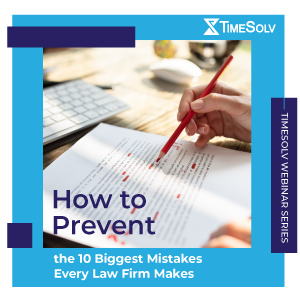Invoice management might appear to be a minor detail in the grand scheme of business operations, but its impact on a firm’s financial health is significant. A well-structured invoicing system not only ensures a steady cash flow but also supports the seamless functioning of daily activities. This is especially crucial for legal firms, where timely client payments are vital to sustaining operations and fostering growth.
Yet, despite its importance, many law firms still struggle to maintain efficient invoice management processes. Legal professionals who rely on manual invoicing face an increased risk of errors, limited financial visibility, and a higher likelihood of inaccuracies. To address these challenges and enhance operational efficiency, transitioning to a robust invoicing system is not just advisable—it’s essential.
The Importance of Optimized Invoice Management for Legal Firms
Invoice management for legal firms typically involves several stages. After the firm renders legal services, invoices are generated, detailing the billable hours and expenses. These are then verified for accuracy against the agreed rates. Once verified, invoices are sent to clients, and the firm closely monitors payments and outstanding balances.
While this sounds like a straightforward process, the task requires great attention to detail and compliance with industry standards. This is especially true in the legal sector, where even minor discrepancies in invoices can lead to disputes, reputational damage, and potential loss of clients.
Effective invoice management for small legal firms ensures a steady cash flow, which is essential for supporting ongoing activities and driving expansion. For large legal firms, invoice management is critical to managing complex billing arrangements and high-volume transactions, ensuring that all billable hours and expenses are accurately captured and reimbursed.
Optimized invoice management helps build and maintain strong client relationships. Transparent and accurate billing practices demonstrate professionalism and reliability, reinforcing client trust and satisfaction. By prioritizing meticulous invoice management, law firms can avoid disputes, reduce administrative burdens, enhance their financial stability, and boost client loyalty.
5 Effective Invoice Management Strategies for Legal Firms
Focus more on delivering exceptional client service by optimizing your billing processes. Here are a few proven strategies in invoice management for lawyers and law firms:
1. Maintain accurate timekeeping
Lawyers and paralegals often manage multiple cases simultaneously, making it a challenge to maintain accurate records of billable hours for each client. Manually tackling this task leaves staff prone to filing inaccurate billings. This greatly undermines a client’s trust in your performance, negatively impacting your firm’s revenue on several fronts.
Minimize manual entry by opting for a software platform like TimeSolv, which allows you to automate your time tracking and integrate invoice templates for faster generation. By leveraging TimeSolv’s invoice templates that you can tailor-fit to your business, you can ensure your billing guidelines are consistently applied and enforced. TimeSolv facilitates error-free invoicing that adheres to your firm’s policies, significantly reducing the likelihood of disputes and payment delays.
2. Offer convenient payment options
After issuing an invoice, payment times can vary. Nowadays, providing clients with easier and more convenient payment methods leads to better business as it increases the likelihood of timely payments.
Choose a software platform that supports multiple payment methods across any device. With TimeSolv, you can securely accept credit cards, debit cards, ACH payments, and electronic checks via TimeSolvPay.
This built-in payment processing system also speeds up the waiting period for your payment with its next-day funding feature and online payment links embedded in your email invoices. Law firms using TimeSolv also provide clients with a secure portal where they can easily and independently process payments online and view invoices. Client portals also enable users to access payment histories, trust balances, and details of ongoing work, enhancing transparency and improving overall client engagement.
3. Automate your invoice tracking
Don’t risk overlooking unpaid invoices due to inefficient manual tracking. Why spend several days on an administrative function that can now be tracked in real time? With TimeSolv, you can effortlessly monitor invoice statuses, store client information, and receive hundreds of payments all within a single platform.
This approach simplifies your workflow, allowing you to generate reports and insights that can inform your financial strategies. By reducing the time spent on tracking invoices, you can allocate more resources to client engagement and case management, enhancing your firm’s overall productivity.
Legal billing terms can be confusing. Download our cheat sheet and get all the information you need!
4. Create detailed invoices
Improve your relationships with clients by being financially transparent. You can achieve this with a well-laid-out invoice template that simplifies the billing process for you and your client.
When crafting an invoice template, make sure to include essential information such as:
- your business details
- your client’s information
- unique invoice number
- date of issuance
- detailed breakdown and description of the rendered services
- total amount due
- your company’s payment terms
- Goods and Service Tax (GST) information, if applicable
To prevent misunderstandings, reinforce client agreement terms by clearly restating the payment conditions outlined in your engagement or retainer agreement. Specify the consequences of late payments, such as interest charges or additional fees, on the invoice to manage expectations and encourage timely settlement. This proactive approach helps ensure that both parties are aligned and minimizes the risk of disputes.
5. Review debt collection processes
Overdue debts are nearly unavoidable in any profession. Law firms, in particular, must establish standardized procedures that comply with strict regulations on how and when to contact debtors. Start by reaching out through written correspondence and phone calls before escalating the issue. Maintain transparent records of all communication attempts regarding unpaid invoices.
Depending on your firm’s policies, you may consider implementing a tiered approach to collections. This includes setting specific timelines for follow-ups, utilizing automated reminders, and, if necessary, engaging a third-party collection agency as a last resort to recover outstanding debts while ensuring compliance with legal standards.
Given that some debtors can still default on payments despite proactive measures, law firms need to establish a clear recovery process for managing such situations. Consistently document each stage of the process to strengthen your case in non-payment scenarios. Specialized software like TimeSolv can simplify this by calculating accrued interest on late payments at regular intervals.
Transform Your Invoice Management Process with TimeSolv
While traditional manual methods are fraught with risks that can be detrimental to a firm’s reputation and bottom line, you can readily address them by automating your invoice management with TimeSolv. Receive payments faster and more conveniently by leveraging the following features:
- Convenient Invoice Creation: Get custom invoice templates through TimeSolv’s secure invoicing software and enjoy other key features such as electronic billing, fixed-fee options, and automatic tax calculations.
- Comprehensive Time Tracking: TimeSolv’s time-tracking feature is tailored to the way you work—anywhere, anytime, and on any device. Record every minute to maximize billable hours and revenue.
- Efficient Payment Processing: Record and track client payments with ease using TimeSolvPay. Streamline your workflow and improve cash flow.
How to Prevent the 10 Biggest Mistakes Every Law Firm Makes
Are you looking for a simple way to boost your law firm’s productivity and increase client satisfaction? Stop committing these 10 common mistakes! watch the webinar now.















